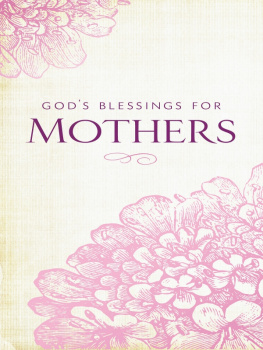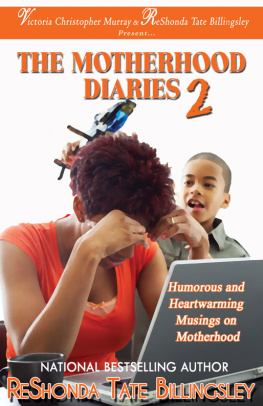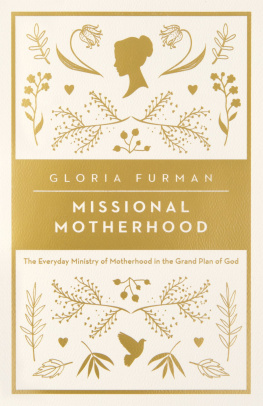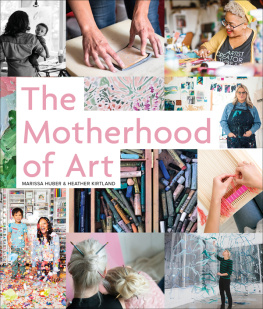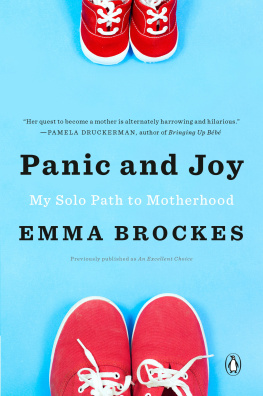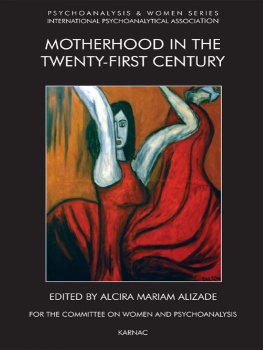Buchi Emecheta - The Joys of Motherhood: A Novel
Here you can read online Buchi Emecheta - The Joys of Motherhood: A Novel full text of the book (entire story) in english for free. Download pdf and epub, get meaning, cover and reviews about this ebook. year: 1979, publisher: Allison & Busby, genre: Art. Description of the work, (preface) as well as reviews are available. Best literature library LitArk.com created for fans of good reading and offers a wide selection of genres:
Romance novel
Science fiction
Adventure
Detective
Science
History
Home and family
Prose
Art
Politics
Computer
Non-fiction
Religion
Business
Children
Humor
Choose a favorite category and find really read worthwhile books. Enjoy immersion in the world of imagination, feel the emotions of the characters or learn something new for yourself, make an fascinating discovery.

- Book:The Joys of Motherhood: A Novel
- Author:
- Publisher:Allison & Busby
- Genre:
- Year:1979
- Rating:5 / 5
- Favourites:Add to favourites
- Your mark:
- 100
- 1
- 2
- 3
- 4
- 5
The Joys of Motherhood: A Novel: summary, description and annotation
We offer to read an annotation, description, summary or preface (depends on what the author of the book "The Joys of Motherhood: A Novel" wrote himself). If you haven't found the necessary information about the book — write in the comments, we will try to find it.
The Joys of Motherhood: A Novel — read online for free the complete book (whole text) full work
Below is the text of the book, divided by pages. System saving the place of the last page read, allows you to conveniently read the book "The Joys of Motherhood: A Novel" online for free, without having to search again every time where you left off. Put a bookmark, and you can go to the page where you finished reading at any time.
Font size:
Interval:
Bookmark:
[Page 6 ]
Front matter
To all mothers
[Page 7 ]
Main text
The Mother
Nnu Ego backed out of the room, her eyes unfocused and glazed, looking into vacancy. Her feet were light and she walked as if in a daze, not conscious of using those feet. She collided with the door, moved away from it and across the veranda, on to the green grass that formed part of the servants' quarters. The grass was moist with dew under her bare feet. Her whole body felt the hazy mist in the air, and part of her felt herself brushing against the white master's washing on the line. This made her whirl round with a jerk, like a puppet reaching the end of its string. She now faced the road, having decided to use her eyes, her front instead of her back. She ran, her feet lighter still, as if her eyes now that she was using them gave her extra lightness. She ran, past the master's bungalow, past the side garden, and shot into the untarred gravel road; her senses were momentarily stunned by the colour of the road which seemed to be that of blood and water. She hurried on beyond this short road that led to the big tarred one, ran like someone pursued, looking behind her only once to make sure she was not being followed. She ran as if she would never stop.
The year was 1934 and the place was Lagos, then a British colony. The Yaba housing estate, a little distance from the island, had been built by the British for the British, though many Africans like Nnu Ego's husband worked there as servants and houseboys; a few foreign blacks who were junior clerks lived in some of the modest estate houses. Even then Lagos was growing fast and would soon be the capital of a newly formed country called Nigeria.
Nnu Ego darted past the Zabo market stalls covered with red corrugated-iron sheets which, just like the wet grass and the gravel on the ground, were glistening with the morning dew. She
[Page 8 ]
in her state did not seem to be seeing all this, yet her subconscious was taking it in. Little sharp stones in the footpath pricked her soles as she reached Baddley Avenue; she felt and at the same time did not feel the pain. This was also true of the pain in her young and unsupported breasts, now filling fast with milk since the birth of her baby boy four weeks before.
Her baby ... her baby! Nnu Ego's arms involuntarily went to hold her aching breasts, more for assurance of her motherhood than to ease their weight. She felt the milk trickling out, wetting her buba blouse; and the other choking pain got heavier, nearing her throat, as if determined to squeeze the very life out of her there and then. But, unlike the milk, this pain could not come out, though it urged her on, and she was running, running away from it. Yet it was there inside her. There was only one way to rid herself of it. For how would she be able to face the world after what had happened? No, it was better not to try. It was best to end it all this way, the only good way.
Her strength was unflagging. One or two early risers saw her, tried to stop her and ask where she was going. For they saw a young woman of twenty-five, with long hair not too tidily plaited and with no head-tie to cover it, wearing a loose house buba and a faded lappa to match tied tightly around her thin waist, and they guessed that all was far from well. Apart from the fact that her outfit was too shabby to be worn outside her home and her hair too untidy to be left uncovered, there was an unearthly kind of wildness in her eyes that betrayed a troubled spirit. But so agile and so swift were her movements that she dodged the many who tried to help her.
By the time she reached Oyingbo market, the sun was peeping out from behind the morning clouds. She was nearing a busy part of the town and there were already people about. The early market sellers were making their way to the stalls in single file, their various bundles tied and balanced unwaveringly on their heads. She collided with an angry Hausa beggar who, vacating one of the open stalls where he had spent the night, was heading for the tarred road to start his day's begging. He was blind and walked with his stick held menacingly straight in front of him; his other hand clutched shakily at his begging calabash. Nnu Ego in her haste almost knocked the poor man down, running straight into him as if she too was without the use of her eyes. There followed
[Page 9 ]
a loud curse, and an unintelligible outpouring from the mouth of the beggar in his native Hausa language, which few people in Lagos understood. His calabash went flying from his shaky hand, and he swung his stick in the air to emphasise his loud curse.
" Dan duru ba !" he shouted. He imagined that, early as it was, he was being attacked by money snatchers who were wont to rob the beggars, especially blind ones, of their daily alms. Nnu Ego just managed to escape the fury of the beggar's stick as she picked up the calabash for him. She did this wordlessly though she was breathing hard. There was nothing she could have said to this man who was enjoying his anger, recounting what he thought was about to happen to him in Hausa. He went on cursing and swinging his stick in the air as Nnu Ego left him.
She began to feel fatigued, and from time to time whimpered like a frightened child; yet she walked fast, resentful that she should feel any physical hurt at all. As she walked, pain and anger fought inside her; sometimes anger came to the fore, but the emotional pain always won. And that was what she wanted to end, very, very quickly. She would soon be there, she told herself. It would all soon be over, right there under the deep water that ran below Carter Bridge. Then she would be able to seek out and meet her chi , her personal god, and she would ask her why she had punished her so. She knew herchi was a woman, not just because to her way of thinking only a woman would be so thorough in punishing another. Apart from that, had she not been told many times at home in Ibuza that her chiwas a slave woman who had been forced to die with her mistress when the latter was being buried? So the slave woman was making sure that Nnu Ego's own life was nothing but a catalogue of disasters. Well, now she was going to her, to the unforgiving slave princess from a foreign land, to talk it all over with her, not on this earth but in the land of the dead, there deep beneath the waters of the sea.
It is said that those about to die, be it by drowning or by a gradual terminal illness, use their last few moments of consciousness going through their life kaleidoscopically, and Nnu Ego was no exception. Hers had started twenty-five years previously in a little Ibo town called Ibuza.
[Page 10 ]
The Mother's Mother
Nwokocha Agbadi was a very wealthy local chief. He was a great wrestler, and was glib and gifted in oratory. His speeches were highly spiced with sharp anecdotes and thoughtful proverbs. He was taller than most and, since he was born in an age when physical prowess determined one's role in life, people naturally accepted him as a leader. Like most handsome men who are aware of their charismatic image, he had many women in his time. Whenever they raided a neighbouring village, Agbadi was sure to come back with the best-looking women. He had a soft spot for those from big houses, daughters of chiefs and rich men. He knew from experience that such women had an extra confidence and sauciness even in captivity. And that type of arrogance, which even captivity could not diminish, seemed to excite some wicked trait in him. In his young days, a woman who gave in to a man without first fighting for her honour was never respected. To regard a woman who is quiet and timid as desirable was something that came after his time, with Christianity and other changes. Most of the women Nwokocha Agbadi chose as his wives and even slaves were those who could match his arrogance, his biting sarcasm, his painful jokes, and also, when the mood called, his human tenderness.
Next pageFont size:
Interval:
Bookmark:
Similar books «The Joys of Motherhood: A Novel»
Look at similar books to The Joys of Motherhood: A Novel. We have selected literature similar in name and meaning in the hope of providing readers with more options to find new, interesting, not yet read works.
Discussion, reviews of the book The Joys of Motherhood: A Novel and just readers' own opinions. Leave your comments, write what you think about the work, its meaning or the main characters. Specify what exactly you liked and what you didn't like, and why you think so.

